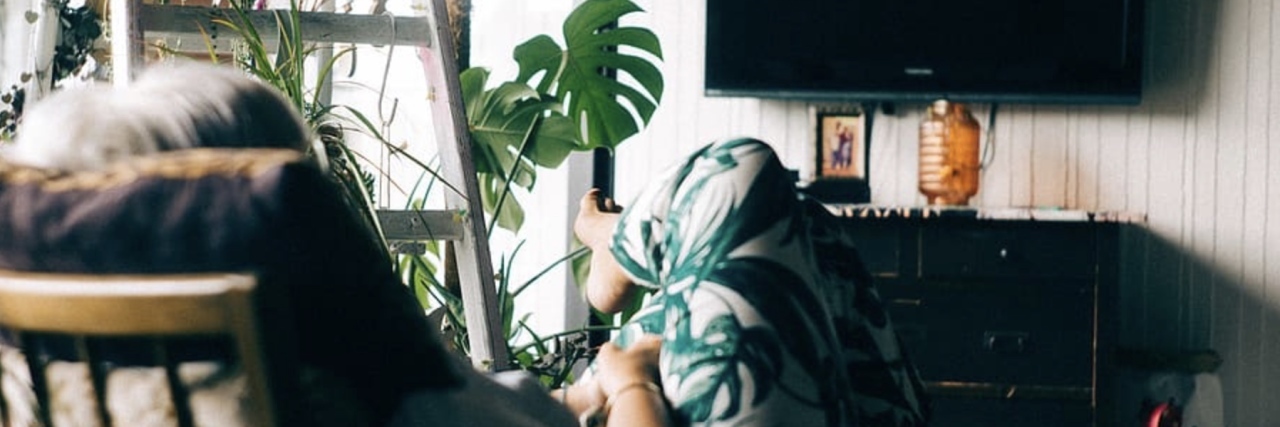When Making 'Normal' Conversation is Hard as the Parent of a Medically Complex Child
I love my children and my husband, my family and my friends. I have a blessed life. I especially feel bad writing about this because I know it’s even harder for our son with a fetal alcohol spectrum disorder (FASD) who has trouble socializing for a range of reasons. I am not complaining. I am trying to explain.
I have been trying to suppress my feelings for days now. It’s not anything dramatic. I almost feel a fraud. I’m not crying into my cup thinking “poor me.” It’s just this emptiness I have been feeling as the parent of a child with a neurodevelopmental disability — specifically, the parent who is more times than not the one left at home.
I am the one who has dropped off chat lists. I am the one who is assumed to be unable to go somewhere. I am the one staring at the TV or computer screen again on a Friday night while our sweet son with a fetal alcohol spectrum disorder (FASD) is in his bedroom doing his multi-hour wind-down before he manages sleep. I am by default the adult who doesn’t go to the show, the drinks, the meal, the shopping excursion, the movie, the trip, the volunteer activity, the committee, the family event.
I can do more to make this evening time to myself meaningful. Of course I can. I could be doing lots of things — crafts, reading, Skyping. Cleaning would be a service to humanity around here. But so often I am just so deeply tired after giving my all to the day and to an intense job that the blank stare at a mindless show is about all I can muster.
The reality is I find myself feeling unfit for socializing so often anyway.
On the rare times I am able to go out, I am not able to be the person I want to be. I feel the heaviness that I carry with me and I see it reflected back in the faces of those I speak with. Meanwhile, I see family and friends share their inside jokes and giggles, and I miss the younger carefree version of me who would be out most nights hanging out and having fun. I can’t tell you the last time I went out and just laughed.
I try not to wallow in a negative mindset. I know I am not alone in feeling like this. It’s not comfortable to talk about negative personal feelings, as we are all supposed to put on that smiley face and not admit that there are times when this life isn’t great. Maybe by my opening up about feeling lonely and left behind, others will too.
I am grateful that we are no longer facing crisis situations. We do have a lovely network of family and friends who are here for us if we need them. I have a partner who is here (and I know he is tired too).
I am not really “alone,” even though I can feel lonely.
If I sent out the bat signal right now, there would be people at our door and I am so deeply thankful for them. People are there if I reach out.
What I am talking about is something more subtle. This withdrawal from “normal” socializing has been building over more than a decade.
Maybe I am only realizing it because things around here are easing and I have the mental space to even think about it. I am becoming acutely aware of the conversations of a more diverse, rounded and full life that happen around and behind me even when I am out — as happened at a café this week when I felt lost in a sea of chatty conversation. There was this buzz of things happening, and I felt so out of step with it all.
The connections have deepened between others around me, and as each year passes I am that much more disconnected.
Our lives are intensely focused on the needs of a talented, loving young person with FASD who is growing into a young adult on his own time scale, in his own way. There are immediacies and worries and concerns, which are very real. When I am out with people, it seems like if I am true to my life and experiences I suddenly bring this intensity into a room and the atmosphere goes heavy.
Sometimes I feel like that character in the Peanuts, Pig Pen, who always has a cloud of dust around and over him. People love and welcome Pig Pen — he’s part of the cast of characters — but they keep him at a slight distance lest that dust settle on them too. They are more relaxed when he is not there.
Life as a parent/caregiver of someone with a neurodevelopmental disability like FASD can be isolating in ways big and small. That has a profound but sometimes subtly compounding effect over time.
Just because a family affected by FASD may seem to be in a “good” place, doesn’t mean that it’s going smoothly or easily. It doesn’t mean the pressure is off. They are probably always worried a bit about what’s around that bend. They still need you. If you are in the wider network of someone with FASD or another neurodevelopmental disability and their parents/carers, send them a little hello. Reach out. You probably have no idea just how welcome that simple act would be.
Image via Piqsels

